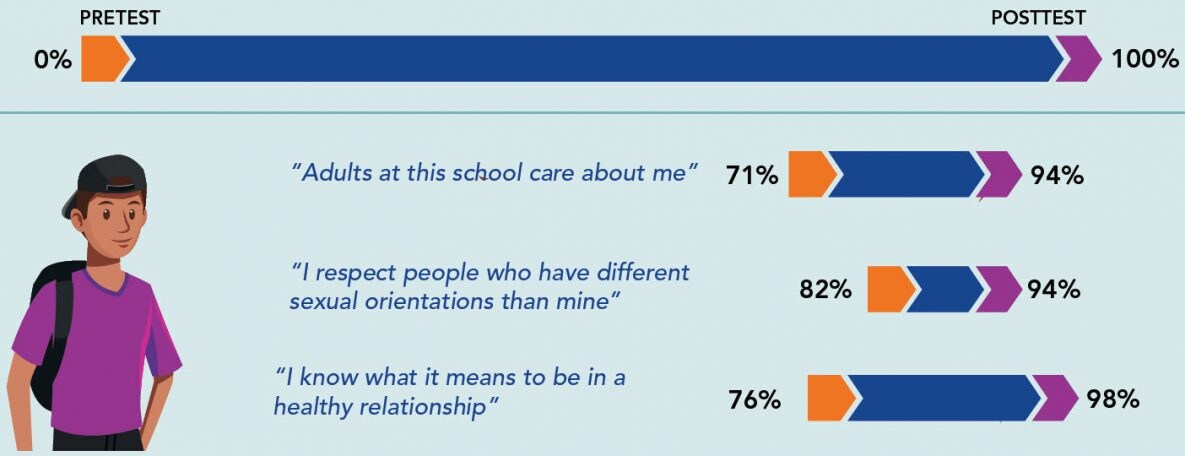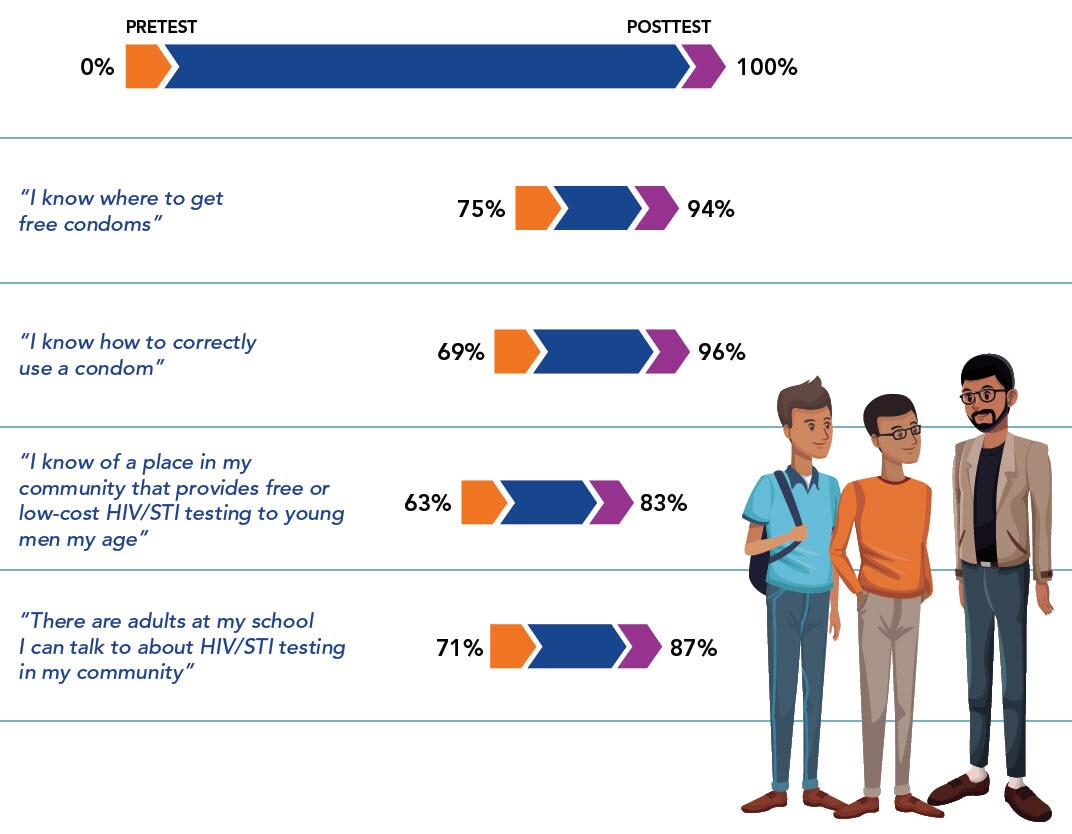San Francisco High Schools Young Men’s Health Groups
The Young Men’s Health Groups program was designed to reach African American and Latino youth with tailored health messages, strengthen participants’ skills to be effective allies, and help build community.
Many young people engage in sexual risk behaviors that can result in unintended health outcomes, and some teens are at higher risk than others.
Recognizing the importance of connecting with teens at high risk, the San Francisco Unified School District (SFUSD) developed a program that works directly with male students to share health messages and practice risk reduction skills.
The Young Men’s Health Groups program was designed to reach African American and Latino youth with tailored health messages, strengthen participants’ skills to be effective allies, and help build community.
During the 2015−2016 school year, 46 young men at 8 priority schools completed the program.


Reach of the Young Men’s Health Groups
Each Young Men’s Health Group was co-facilitated by one staff member from a community-based organization and one staff member from the school’s Wellness Center.
Groups were held at 8 different schools in 2015−2016 and met for 10 sessions addressing topics such as media literacy; dating; gender and body image; LGBTQ issues; being an effective ally; and HIV testing, care, and risk reduction.
The curriculum also included promoting community resources across several topics to participants.
SFUSD has built relationships with a number of community based organizations and was able to contract with these organizations to co-facilitate the Young Men’s Health Groups in schools.
The co-facilitation model helped ensure there was a diverse mix of adults leading the groups.
In addition, SFUSD works with these community-based organizations to continue to update and modify the curriculum in response to feedback from facilitators and participants.
Participants in the Young Men’s Health Groups completed pretests and posttests about behaviors and experiences.
The results of the evaluation showed significant increases in sexual health knowledge.
After completing the sessions, participants were more likely to know where to access condoms and HIV/STI testing, respect people with different sexual orientations, and feel that someone at their school cared about them.
Key Results of the Young Men’s Health Groups Evaluation: Sexual Health Services
